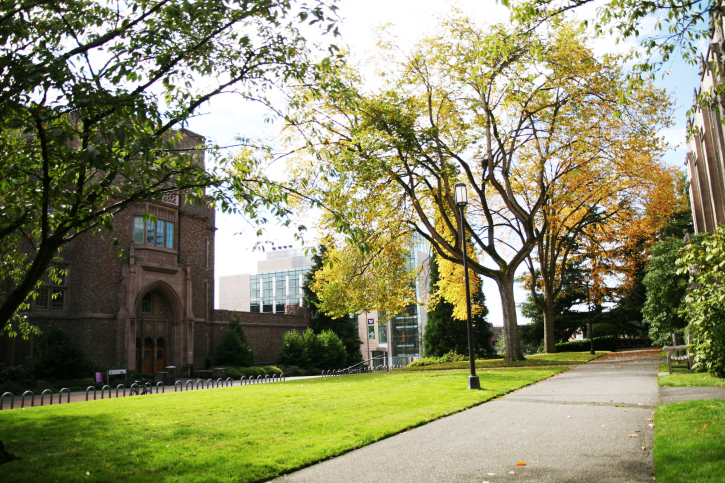A new report by the National Association of Scholars shows how popular the sustainability movement has become college and university campuses in the United States and around the world, since the movement was formally organized on college campuses in 2006. The NAS’s study argues, the movement poses a serious threat to liberal education and to political and economic liberty.
“Sustainability” has become a buzzword in the United States and internationally over the past decade. The concept of sustainability first began being discussed in the early 1980s and in 1987, the United Nations’ World Commission on Environment and Development defined sustainability as “development that meets the needs of the present without compromising the ability of future generations to meet their own needs.”
That definition is elastic enough to serve as a pretext for halting any economic activity at all, and it is increasingly being used in just that way. According to the National Association of Scholars (NAS) report, “Sustainability: Higher Education’s New Fundamentalism,” sustainability activists actually admire totalitarian dictatorships such as China and North Korea because they “get things done” without having to consult with or be constrained by the desires of the unwashed masses. Sustainability activists indict individual choice as immoral because people tend not to choose the policies, products, and lifestyles the sustainability promoters prefer.
Hence the sustainability movement prefers autocratic methods, such as establishing federal agencies staffed by presumably selfless scientific experts to manage the economy – agencies beholden neither to the market’s pursuit of profits nor the political sphere’s requirement of elective majorities. As the NAS report notes, “Sustainability’s alternative to economic liberty is a regime of far-reaching regulation that controls virtually every aspect of energy, industry, personal consumption, waste, food, and transportation. Sustainability’s alternative to political liberty is control vested in agencies and panels run by experts insulated from elections or other expressions of popular will.”
This autocratic agenda is entirely unjustified. What practices are sustainable differ with time, resource availability, technology, and other factors. Slash-and-burn agriculture was sustainable for thousands of years for small groups of native peoples living isolated in forests and jungles. That practice is not sustainable today, as population densities and competition for resources have grown immensely in the past century.
Sustainability advocates don’t acknowledge this variability, instead acting as if there were only one correct way to live for everyone, for all time, regardless of economic, political, and environmental circumstances.
If sustainability were just one ideology among myriad others being discussed by professors in the classrooms and competing for students’ allegiances, it would do no harm to academic freedom. But sustainability is being incorporated by force into the very ethos of higher education, to the exclusion of open inquiry, reasoned debate, and free thought. Universities are increasingly seeing their mission as being not to train young minds how to think, but rather what to think. Sustainability is a central element of that agenda.
There are 1,438 degree programs at 475 colleges and universities in 65 states and provinces focused on or related to sustainability studies. Even students not seeking a degree in sustainability are finding it increasingly difficult to avoid the subject, as colleges and universities have integrated it into the curricula for all disciplines. Sustainability has been incorporated into their mission statements, and in more than a thousand institutions of higher learning it has been adopted as a goal for purchasing decisions, a guide for staffing, and a standard for student housing.
While the cost of higher education is rising dramatically and universities are replacing professors with adjuncts and part-timers, they are stocking up on sustainability experts. The average university sustainability director makes approximately $82,791 per year, and energy managers average $67,392. A survey showed 80 percent of sustainability staff felt their jobs were either “secure” or “very secure,” even as student debt rises and college budgets shrink.
NAS estimates U.S. colleges and universities currently spend more than $3.4 billion per year pursuing sustainability. Spending on sustainability is rising at a time when 7.5 percent of recent college graduates are unemployed and another 46 percent underemployed, suggesting colleges should be devoting more of their funding to academic excellence than politically favored peripherals.
The sustainability movement is a knife to the heart of what a liberal education in a free society is supposed to be about: the exploration of differing ideas, ways of thinking, and lifestyles, to develop a well-rounded, educated individual capable of taking on the role of a productive citizen in a democratic society.
Colleges should boot sustainability off campus.





